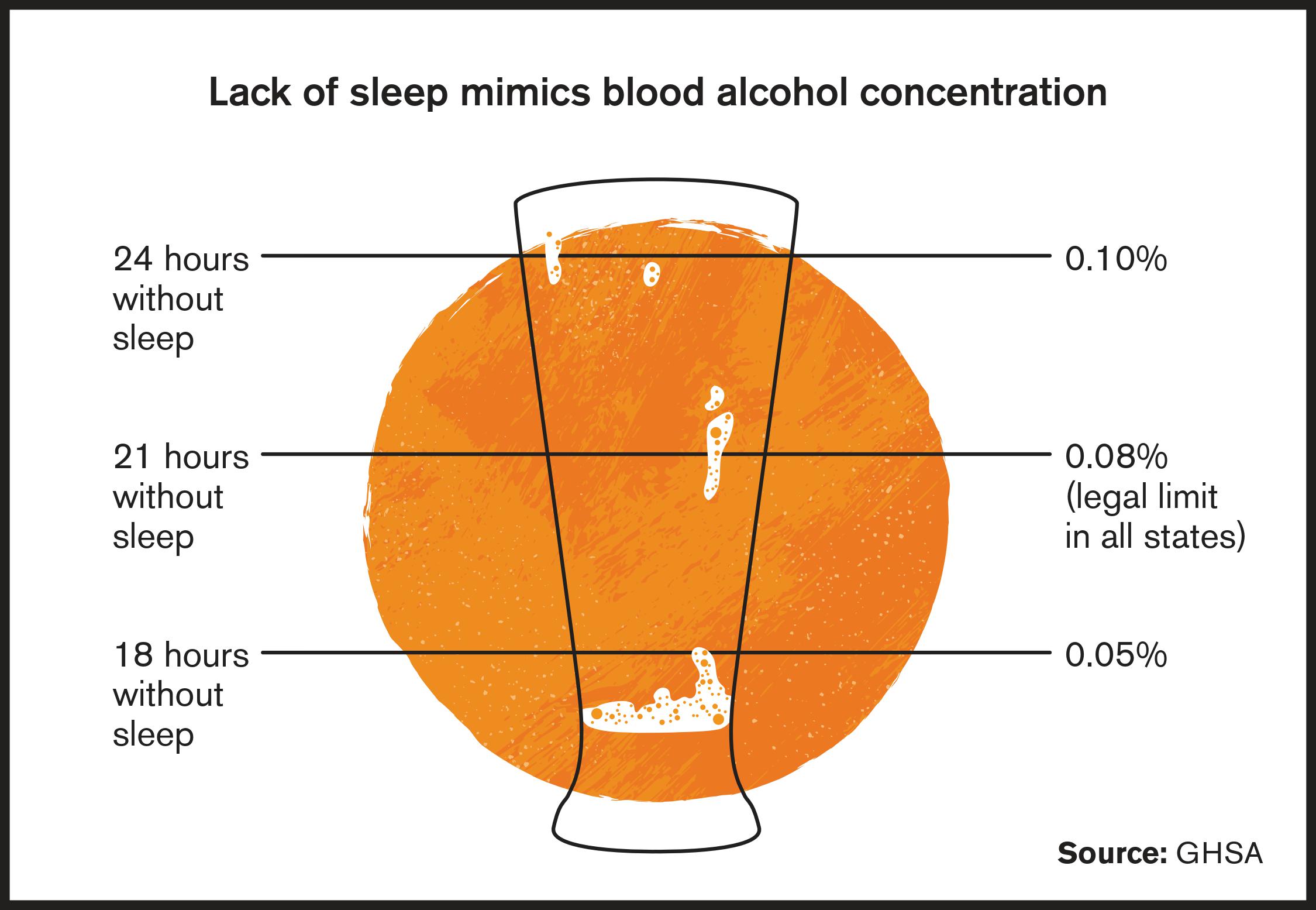Drowsy Driving Truck Accidents
Operating any motor vehicle requires the driver’s full attention and focus. When operating a large and complex commercial truck, it’s even more crucial that the driver remain constantly focused on the road. One mistake can lead to severe injuries and fatalities.
When drivers, including truck drivers, become drowsy or fatigued behind the wheel, they can suffer a reduction in their reflexes. They may find it more difficult to react when they encounter an emergency or sudden event on the road. Tired drivers may also suffer impaired judgment. They may find it more difficult to process what is happening on the road, and they may engage in reckless or aggressive driving.
Due to the dangerous impacts that drowsy or fatigued driving can have on a motorist, federal and state regulations impose limits on the number of hours a truck driver can stay on duty or behind the wheel. The regulations require truck drivers to rest before fatigue sets in. When truck drivers drive past these “hours of service” limits, drowsiness or fatigue can set in, and a truck driver can wind up causing a serious collision.
Have you or a loved one been injured in a truck accident in Michigan caused by a drowsy or fatigued driver? You may be entitled to hold the truck driver and the trucking company responsible for your injuries and damages.
Contact Christensen Law today for a free initial case evaluation. We will discuss your accident and you will learn more about your legal rights and options for pursuing the financial recovery you need and deserve. Contact us today by phone or online.

Understanding Truck Driver Hours of Service Regulations
Under U.S. Department of Transportation regulations, which have been adopted by the Michigan Department of Transportation, truck drivers must comply with these hours of service regulations:
- Drivers may drive a maximum of 11 hours after having 10 consecutive hours off-duty.
- Drivers may not drive beyond the 14th consecutive hour of being on-duty, following 10 consecutive hours off-duty. Any off-duty time during this 14-hour period does not extend the period.
- Drivers may continue to drive past normal hours of service limits if eight hours or less have passed since the end of the driver’s last off-duty period in a sleeper berth of at least 30 minutes. Drivers using this sleeper berth provision must take at least eight consecutive hours in the berth, plus a separate two consecutive hours in the sleeper berth or off-duty.
- Drivers may not drive after 60 hours on duty within a seven-day period, or after 70 hours in an eight-day period; drivers may reset these limits after taking a period of at least 34 consecutive hours off-duty.
Drivers must record their on-duty and driving hours in a log, so that the driver’s compliance with the hours of service regulations can be verified.
When Drowsy Driving Leads to Drugged Driving
Truck drivers who realize that they are exceeding their hours of service limits may, unfortunately, turn to drugs to help them cope with the drowsiness and fatigue that sets in. Drivers may use stimulant drugs to counter the effects of feeling tired.
However, the use of drugs outside the recommendation and supervision of a licensed medical provider can lead to adverse effects. The driver may believe that using stimulants will remove the effects of feeling tired. However, drugs may not eliminate the impaired reflexes or judgment brought about by drowsy driving. Those impaired reflexes and judgment can result in a serious truck accident.

How to Prove Fault After a Drowsy Driving Truck Accident
If you’ve been involved in a truck accident where you suspect the truck driver was driving while drowsy or fatigued, you may wonder how to prove the driver was driving while drowsy or fatigued.
Critical evidence for proving fault in a drowsy driving truck accident can include the driver’s logs. If the driver’s logs show hours of service regulations were exceeded, that can serve as strong evidence that the driver may have been drowsy or fatigued behind the wheel.
Other evidence of the driver’s fatigue or drowsiness may include data from the truck’s “black box,” if the driver’s truck has one. The black box may show delayed or unusual steering, acceleration or braking patterns that point to drowsiness or fatigue.
Finally, eyewitnesses’ testimony about the truck driver’s behavior may indicate a drowsy or fatigued state. The driver’s odd behavior behind the wheel might include straying over traffic lines, losing speed then accelerating up to the speed limit, or driving well below the posted speed limit.
How a Lawyer Can Help If You Were Hurt by a Fatigued Truck Driver
When you are injured in an accident caused by a fatigued truck driver, an experienced truck accident attorney from Christensen Law can help you pursue a claim for compensation by:
- Investigating your accident and securing evidence to show your accident was caused by a drowsy or fatigued driver. The evidence includes the driver’s logs, the “black box” and eyewitness accounts of the driver’s behavior or operation of the vehicle.
- Identifying other potential at-fault parties and sources of compensation (such as insurance coverages) so that you are fully compensated for your damages and losses.
- Aggressively negotiating with the insurance companies and lawyers for the other side to obtain a settlement that provides you with full and fair compensation.
- Preparing to take your claim to court, if it becomes necessary, to give you the best chance at maximum financial recovery.
If you’ve been hurt by the negligent or reckless driving of a fatigued truck driver in Michigan, schedule a free, no-obligation consultation with a truck accident attorney from Christensen Law today. We’ll discuss the details of your case, and you’ll learn more about how our firm can help you secure the financial compensation you need to recover from your injuries and damages.
Call us today of fill out an easy online contact form.






